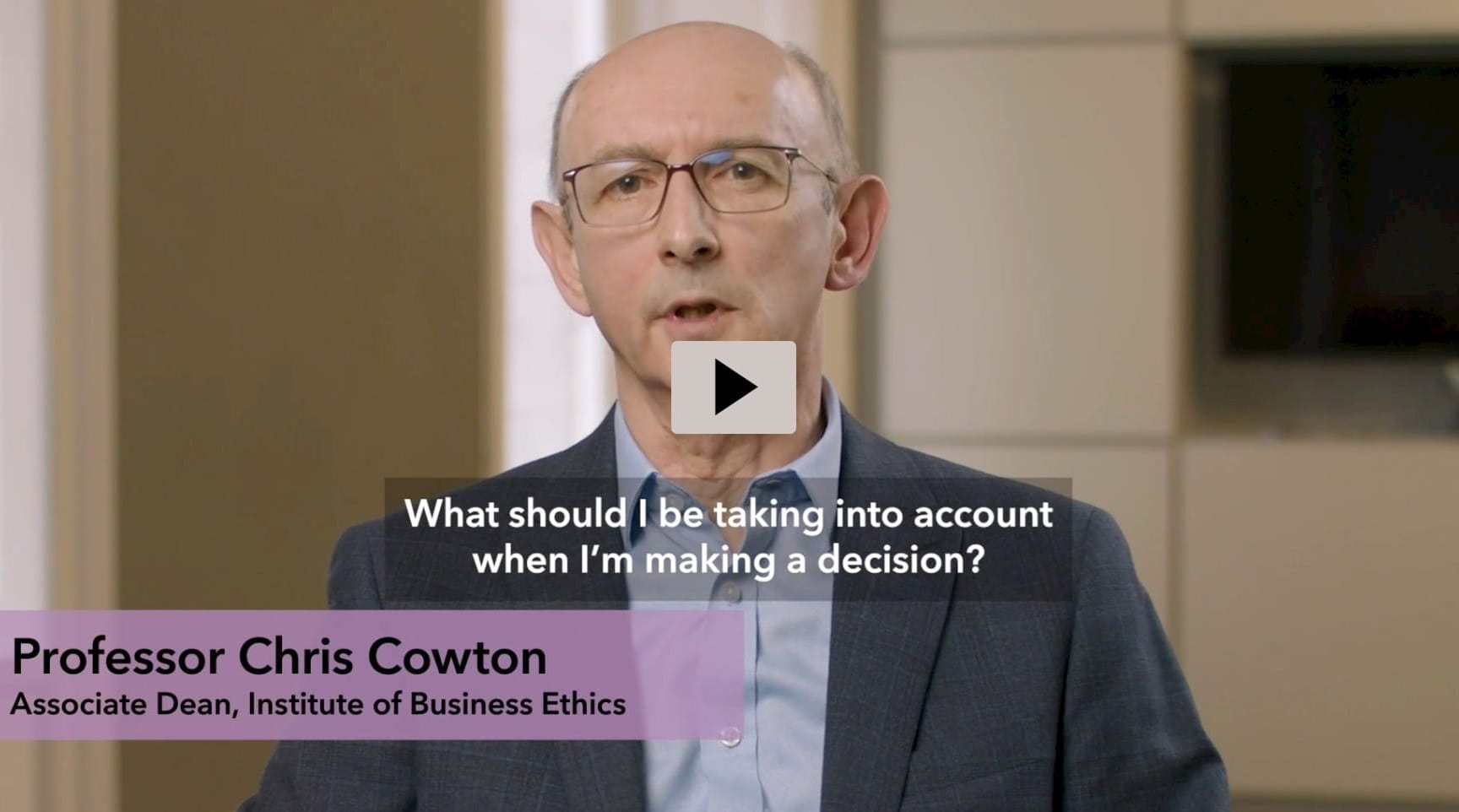As CFO of Ilchester Estates, Kevin Jutson understands the importance of ethical decision making and why it matters.
Ilchester Estates comprises Dorset farmland and estate companies, as well as property in London’s affluent Holland Park and other areas of the UK. Jutson says integrity is of the utmost significance in all aspects of his role.
“In our decision making, always considering the integrity of our business, the integrity of our employer, but also the industry in which we operate, is vital. Making sure that we’ve got strong standards and principles, that cover anything from equality and fairness to how we treat employees and other stakeholders, is critical. Also, we must continuously maintain those principles and continuously apply the relevant rules and regulations within the industry in which we operate,” says Jutson.
He is only too aware that it is not enough to have a clear ethical tone at the top of a business. It is also vital to outline and communicate the organisation’s aims and objectives and report on them regularly if you want to achieve ethical commitments and considerations.
Ensuring that an organisation’s goals are well communicated to everybody within the business and underpinning that with a robust reporting framework will help retain ethics within a business, Jutson says.
“There is a requirement to report on those factors that you consider not only when making decisions, but when you carry out your day-to-day role as well. And if you’ve got the regularity of that reporting, everyone is held accountable to make sure that you do consider all factors,” Jutson says.
Listen to concerns
At a time where the UK’s whistleblowing protections are under scrutiny, it’s also critical to ensure there are spaces for people to raise concerns or issues where perhaps they see those standard-setting or ethical considerations not being made.
UK whistleblowing rules have remained largely unchanged since the Public Interest Disclosure Act 1998 (PIDA) was introduced 25 years ago. Recently, though, the UK has begun to question whether the existing framework is fit for purpose in light of policy developments in Europe.
“You’ve got to make sure that you set the right environment so people have the opportunity to bring concerns to the fore, openly discuss them and feel that their concerns will be listened to, and ultimately addressed and moved forward,” he says.
Jutson also highlights how the annual employee review can be used as a time and space to raise any concerns, because it should be a two-way process.
“That review isn’t just the financial contribution an employee has made to a business, depending on the role, but it is how you maintain the standards and principles of the organisation. And there has to be action that follows if issues are identified.”
That process works two ways, he explains, giving the individual the opportunity to discuss concerns they’ve got of ethical standards not being addressed across an organisation. “But it’s also a chance for you to hold people to account in those particular circumstances.”
High standards
Given the diversity of Ilchester Estates’ businesses, Jutson’s decision making must be held to the highest of standards and transparency.
“Every significant investment decision we make follows a certain process. That process has to consider ethical considerations as well as financial ones from the very start of formulating that potential idea to ultimately getting it signed off at the very end. Where you start to deviate from that process is obviously where slippage can happen. It’s important to remain focused and keep consistent with what you’re doing,” he says.
It’s not always easy upholding ethical standards, especially in economically challenging times, but Jutson says that consistency is the key.
“If you consistently apply what the leadership says and what you firmly believe in and that’s communicated across the organisation, over the longer term, you as an individual and your business will prevail and those that don’t will disappear.”
Middle managers are also vital to executing ethical behaviour, because they will oversee the day-to-day working. But the CFO says that ethics should be a focus for everyone in a business and that it should start from the onboarding process.
The speed and pace of change in the business world is challenging for ethical decision making, and there is always that push and pull in business. But, “in an ideal world, it should be based on profitability and commerciality of business and also ethical standards and integrity”.
But there is a fine balance between risk and reward. If managers are placed under too much pressure for profit, then “there’s the opportunity for standards to slip”. There are other challenges in the modern working world, too, such as hybrid working and the potential risks that go with it. However, Jutson says that if accountants adhere to the robust rules in place and ensure others do too, then high ethical standards will prevail.
Global Ethics Day
Global Ethics Day 2024 focused on using the power of ethics to build a better world. ICAEW examined the vital role ethics must play in the use of technology in accountancy.




